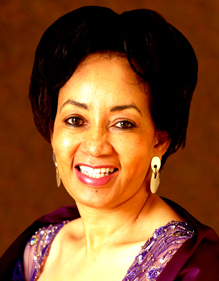|
Getting your Trinity Audio player ready...
|
 Tough talking Public Service Minister Lindiwe Sisulu’s announced plans this week for government’s re-energised anti-corruption drive, which promises to have more muscle and clout than previous interventions.
Tough talking Public Service Minister Lindiwe Sisulu’s announced plans this week for government’s re-energised anti-corruption drive, which promises to have more muscle and clout than previous interventions.
These plans include naming and shaming public servants found guilty of misconduct, adding their names to a central database to effectively blacklist them from future jobs in government, and moving swiftly to change the law so it becomes illegal for office bearers to do business with the state.
Such news is music to Corruption Watch’s ears – but we’ll be watching closely to see how these words are turned into meaningful actions. For taking these steps and showing political will, Minister Lindiwe Sisulu is our hero of the week.
Speaking to reporters in Cape Town yesterday, Sisulu said public servants found guilty of misconduct would soon be unable to change jobs within government.
Sisulu said her department's anti-corruption unit would be re-modelled into an anti-corruption bureau, as the current system did not have enough “muscle and power” to be effective.
“We do not have the investigative capacity nor the powers to investigate.”
The incapacity of government departments to deal with misconduct cases meant officials suspected of misconduct remained suspended with pay for long periods of time.
“This is something we need to do something about … fast-track the process of misconduct cases. We want a bureau which has the muscle to do these things and work with other anti-corruption agencies in the state.”
Sisulu's department was amending the Public Service Act, to give effect to the planned changes.
The amendments, which would also establish the Anti-Corruption Bureau, would come before Parliament by June.
“Once we have established the bureau, we'll be able to have dealt with the long period it takes to resolve our cases internally. We'll deal with unresolved cases that go on forever … We will deal with management members in certain departments who are reluctant to address certain cases,” said Sisulu.
The bureau would have the authority to investigate across all three spheres of government.
“We'll have uniform standards applying to all our cases … We'll not have a case dealt with by the department of finance which has one outcome, different from a case dealt with in Mpumalanga.”
A central database to store information on all public servants would be set up, Sisulu said.
“If anybody is convicted of misconduct, that case will be registered centrally so that we don't have a case that is repeating itself in the public service where somebody is found guilty of an offence, is either suspended or removed from office in Limpopo, and then finds a job in Gauteng.”
The database would also help to ensure that public servants were not doing business with the government, the minister said.
“We hope to have the legal muscle to connect our database with Cipro (the Companies and Intellectual Property Registration Office), with SARS (the SA Revenue Service) … that would indicate to us that if at any stage the lifestyle of a particular public servant is out of sync with what they earn from us.” – Sapa



